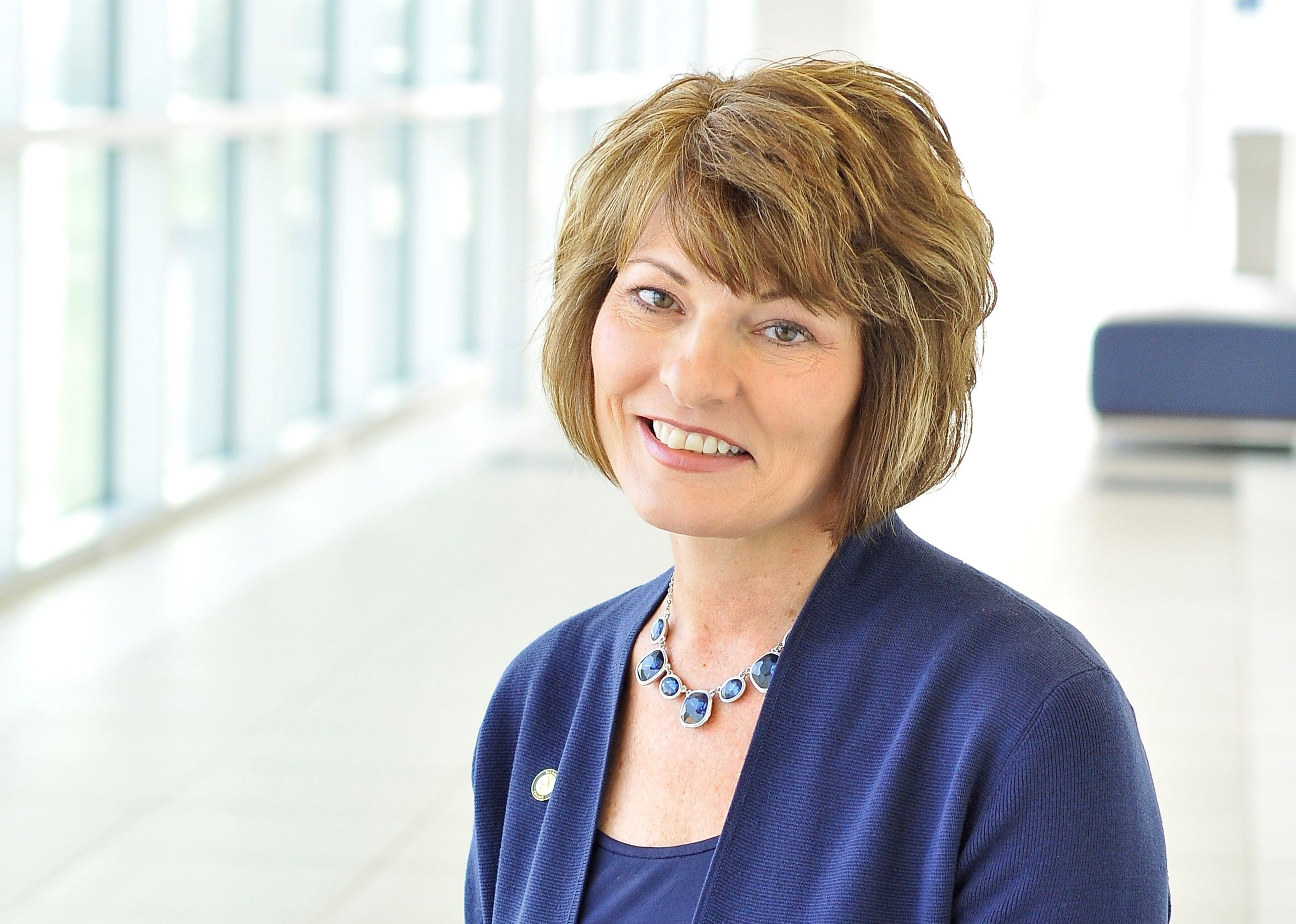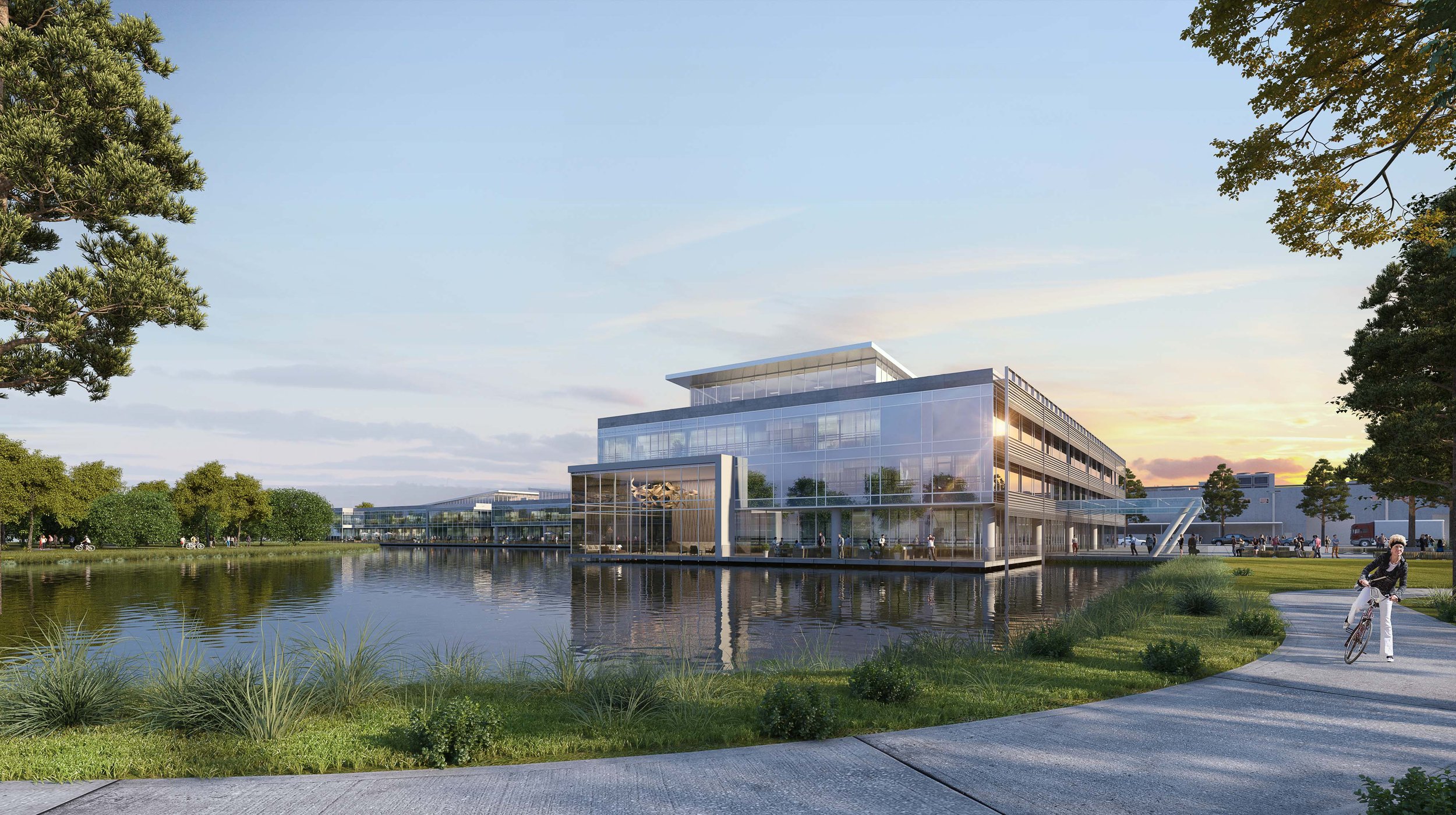Higher Education Gains from its Role in the UpSkill Houston Collaboration
Published Aug 21, 2019 by Peter Beard
Peter Beard, the Greater Houston Partnership’s senior vice president for Regional Workforce Development, leads the Partnership’s UpSkill Houston initiative. Beard recently hosted a roundtable of representatives from the various sectors participating in UpSkill Houston – industry, K-12, higher education, and community development. Dr. Brenda Hellyer, chancellor of San Jacinto College, participated in the roundtable, and her comments are excerpted below.
Peter Beard: What are the unique benefits for higher education of working in collaboration with employers, K-12 educators, and community development leaders?
Brenda Hellyer: From a higher ed standpoint, we’ve had advisory committees of industry leaders before, but this takes that work to a different level. With UpSkill Houston, we’ve said we want to hear the good, the bad, and the ugly. We want to know if our programs meet the needs of industry. And, if not, we want to know how we can fix them. Having the CEOs and our K-12 partners at the table with us for those conversations and to discuss how we align all of our work has taken our collaboration and program development to a whole new level.
In this Gulf Coast region, there are nine community college systems. UpSkill Houston has brought us all together. You have the nine community colleges working with K-12, working with business and industry partners. In addition, you have BakerRipley and other nonprofits in the room. Our students need support. So, at the table, we’re not only planning to provide them with workforce training but also to give them support these nonprofits can offer.
How has San Jacinto College benefitted from having industry leaders at the table, taking the lead in a collaboration?
At San Jacinto College, it’s been important for us to be able to hear from industry and to get our arms around what’s needed from the supply and demand sides. UpSkill Houston has helped manage the process. That knowledge is helping us prepare adequately for the future. For instance, our Center for Petrochemical, Energy, and Technology is being built because of what we heard from industry. Also, it’s helpful to understand how industry sees jobs changing in the future. That’s been really important work for us in preparation for our next facility and next growth for the college.
What have higher ed leaders helped employers understand through these conversations?
The UpSkill Houston process also enables higher education leaders to say, “This is what I need.” For example, I need internships at petrochemical facilities for students who haven’t been to a plant or a construction site before. The students need to see those facilities not after they graduate, but now. Our industry partners have responded, “We can host this number of students or even bring in your faculty.” The opportunity for faculty to go back into the field and see what’s changed and then make adjustments in their classrooms is invaluable. Having action in both directions has been critical.
Are there any intangible benefits that come from collaboration and new partnerships?
UpSkill Houston also is helping to change the conversation around career requirements. With the different jobs available now and those coming online, it’s not just a four-year degree that students should consider. It’s a certificate. It’s other post-secondary options. It’s continuous learning that’s going to have to take place throughout a career. Changing those conversations is crucial.
What would you tell colleagues about the value of bringing everybody to a single table to address workforce challenges?
We’re taking a regional issue and tackling it from a regional approach. Everybody’s at the table working together and taking actions to make sure we address the future of our workforce. The viability of Houston is based on our workforce and how we prepare workers for the future.
We can’t afford not to be at the UpSkill Houston table. We have to be there, listening and responding, to prepare the workforce. My graduates need to know that they’re prepared for the next job and how they can continue to upskill for the jobs of the future. We need all the community colleges and higher ed partners at the table on this initiative because it’s important work.
This article is one of a series of four Q&As with executives who participated in a roundtable hosted by UpSkill Houston. Don’t miss insights from executives from business, K-12, and community development, also available online.
 The Houston Report
The Houston Report





















